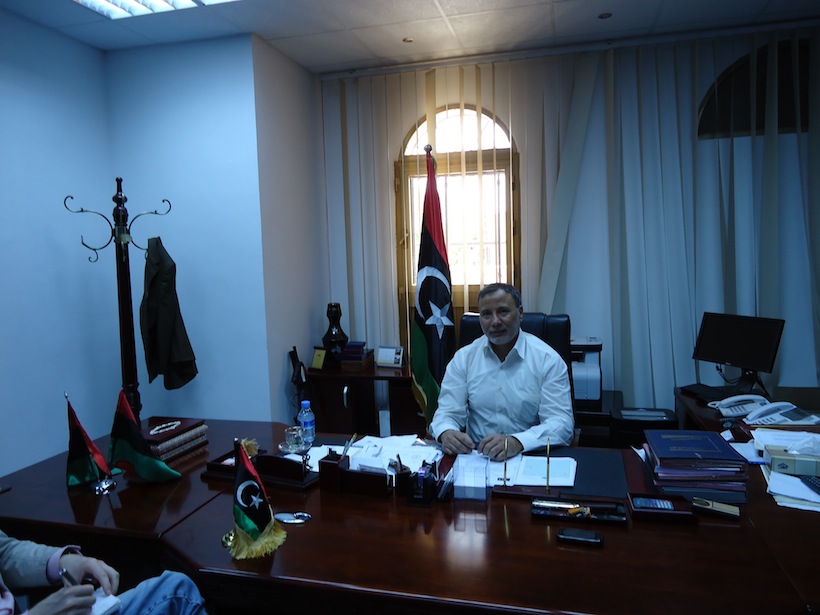Libyan Thuwar met on Wednesday and Thursday in Sabratha to follow up on recommendations made during the Second Conference . . .[restrict]of the Revolutionaries’ National Supreme Council held earlier in Benghazi attended by former revolutionaries from across the country. The council, representing some 200 thuwar brigades throughout Libya, was set up in Tripoli on 21 April.
Its most prominent activity to date was on 1 May when several hundred armed members besieged the NTC’s offices in the capital demanding a direct voice in the NTC and government, seats assigned to them in the new National Congress and an amnesty for any wrongdoings committed during the revolution. Other demands were an extension to the period of voter registration for the election from two weeks to 30 days and candidate registration from eight to 25 days, proper care for all injured thuwar and proper distribution of the grant being paid to the thuwar.
The Sabratha meeting discussed possible new legislation to help Thuwar and the families of those who had been killed, including compensation, on lines adopted in other countries. They also discussed law and order.
Delegates agreed on the implementation of resolution 206, 2012, issued by the Ministry of Health, which deals with treatment of the wounded. Under the resolution an investigation has also been set up to find out why there were delays in treatment.
They also debated the importance of activating the role of revolutionaries in leadership positions, the establishment of a mechanism to apply standards of good governance and “cleanse” ministries of the former regime associates and the reorganisation of rebel battalions as the base for the Libyan national army.
Revolutionaries stressed the importance of the introduction of the law criminalising ideas of the Qaddafi regime as well as his institutions and brigades. They also called for the reform of all Libyan embassies and Libyan investment companies abroad.
The delegates confirmed that the Revolutionaries’ Supreme Council was the only body authorised to negotiate with the government and NTC on their concerns.
Since the Mayday move on the NTC’s HQ, the authorities have conceded two of the Thuwar council’s demands. A law giving amnesty to them is being formulated and the period of candidates registration from the 19 June elections has been extended, although not by as long as was asked.
At the time the offices were besieged, NTC Chairman Mustafa Abdul Jalil met with the thuwar’s representatives and was said to have been sympathetic to their demands for a voice on the NTC and in government. However, he rejected the demand for reserved seats in the National Congress. [/restrict]








